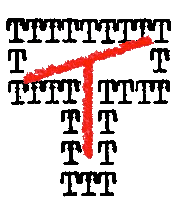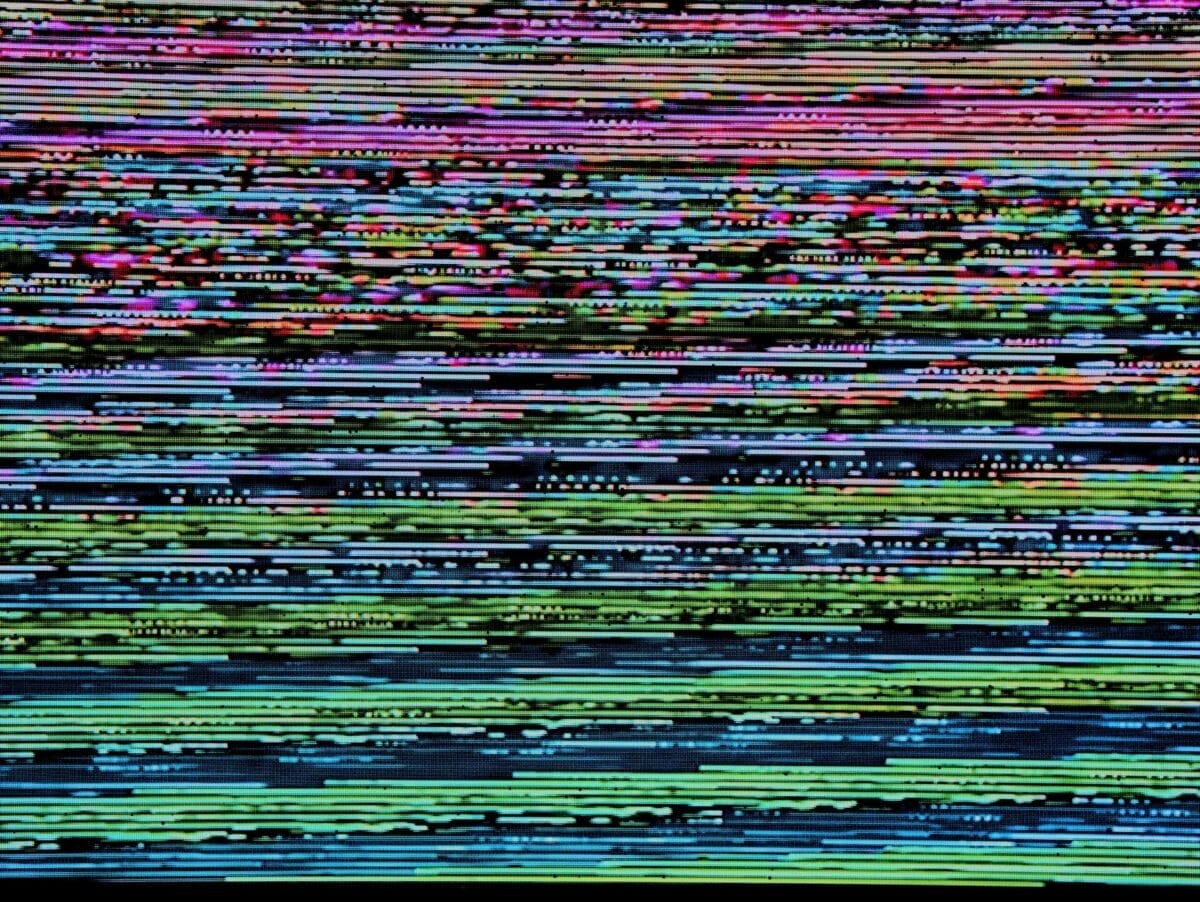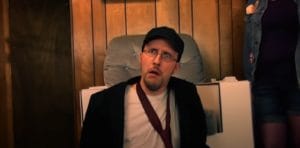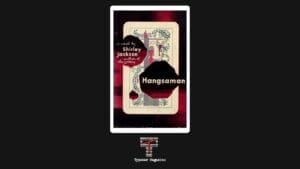By Danny Cohen
A man sits on a camp chair, surrounded by his fellow evacuees, and listens to his wife read a litany of bizarre “psychic predictions” from a tabloid. Outside, the chemical cloud they’ve just fled moves closer.
A man sits at a table in a radio station, berating callers who voice a cacophony of resentments, private sorrows, and political opinions. For the second time this hour, a caller threatens his life.
I don’t know where you are. Maybe you’re sitting, maybe you’re lying down. Maybe you’re on the toilet. What I can say is that you’re probably reading this on a screen. You’ve probably read other things on a screen today. At least one of them probably made you feel confused, angry, or afraid. You probably feel doomed on a regular basis.
* * *
Don DeLillo’s White Noise follows an academic year or so in the life of Jack Gladney, a prominent professor in a small college town. It has a plot of sorts. There’s an emergency evacuation, a mysterious drug, a spousal betrayal. It flirts with the idea of portraying a murder. But the plot never feels like the point. The book feels more like a collection of moments and ideas. It asks how we cope with our knowledge of death, how we construct meaning and truth and identity in the modern world, and what effects our daily bombardment of data may have on our brains. The novel was published in 1985.
Eric Bogosian’s Talk Radio follows an on-air hour or so in the life of Barry Champlain, the belligerent host of a call-in radio show in Cleveland. It has a plot of sorts. There are corporate stakes, interrelated calls, a visitor to the station. It flirts with the idea of portraying a murder. But the plot never feels like the point. The play feels more like a character study. It asks how we distinguish reality from entertainment, how we construct meaning and truth and identity in the modern world, and what effects our daily bombardment of perspectives may have on our souls. The play premiered in 1987.
I feel like the internet broke my brain. I am addled, filled with dread, addicted to constant stimulation but overwhelmed by the flood of facts and opinions I can’t stop absorbing. Bad news comes from more angles than I can count. Many of my peers report a deterioration of their attention spans. The online world has so thoroughly shaped society that even logging off will not spare you its touch. You’ll see posts on the news, microcelebrities on t-shirts, memes on the menus in restaurants. It seems impossible that the overwhelm I experience, the omnidirectional dread, these specific flavors of small and lost, could have existed at any other time in history. So why do I recognize these feelings in two works written before I was born?
White Noise and Talk Radio are both frequently called prescient. They portray characters utterly subsumed in stimuli, and seem to predict the sense of terminal informational entropy we associate with the internet era. But in using words like “prescient” and “predict,” we betray a kind of exceptionalism, a belief that our historical moment is unique. These were not works of futurist speculation; they were commenting directly on life in the mid-1980s and a world before the world wide web. They don’t predict our present but reveal it to be more like the past than we imagine.
* * *
Reading White Noise, reading Talk Radio, I’m reminded of being online. Perhaps most vividly reminded of being online when Russia invaded Ukraine in 2022. I felt sad and worried for the people of Ukraine, sad and worried for the world, powerless and insignificant as ever. Atop all that lay a thick layer of dazed confusion. Logging on, I saw takes upon takes. Takes without number or end. Facts and their alternatives.
It is imperative that the US aid the Ukrainian people in standing up to tyranny. The US is only concerned for these people because they are mostly white. The US is arming Nazi militias. The militia members are noble freedom fighters being slandered by conspiracy theorists. It is fun and cool that Zelenskyy starred in a TV show. It is sadly telling that Zelenskyy starred in a TV show. It is surreal that Zelenskyy starred in a TV show whose events loosely mirror his subsequent political career. The US hasn’t given isolationism a fair shake in a while. All anarchists love NATO.
Then, cutting through the noise, 25 seconds of video rose to the surface. Everyone on Twitter still disagreed with everyone else, but no matter what you believed, the raw power of this clip was undeniable.
CNN coverage. A camera perched high pans slowly across a grey, empty cityscape. A chyron reads, “AIR RAID SIRENS RING OUT IN UKRAINE’S CAPITAL,” and indeed, for nine seconds all you can hear is the wind and their wailing. It’s haunting, almost artistically so. And then suddenly, a twangy electric guitar, an Applebees logo, a generic male pop-country voice, “And a little bit of chicken fried….” But this isn’t simply a smash cut to commercial. Through the ad, the image of Kiev remains, now occupying a small box on the left-hand side beneath an equally small “RUSSIA INVADES UKRAINE” logo. The jingle plays out while images of burgers and blue jeans dominate the frame.
This brought a kind of unity. Whatever you believed about Biden, Putin, or the Azov Battalion, whether you saw the whole thing as a tragedy, a harbinger, or a distraction, everyone could agree that this Applebee’s shit sucked and was also very funny. It was almost perversely reassuring to be denied a dignified kind of heartbreak or anger or fear. The gears still turn. All will be monetized. The world remains embarrassing in a way you can count on.
In Talk Radio, Barry’s role in his listeners’ lives is to agitate them, to keep them off balance, to stroke their sense of superiority over the beliefs of others before inevitably declaring that whatever they believe is also stupid and wrong. During White Noise’s evacuation, Jack’s family relies on the radio for information about where to go and what to fear. The radio provides scraps of ever-evolving fact, and also: “It’s the rainbow hologram that gives this credit card a marketing intrigue.”
* * *
The first half of White Noise is light on plot. Funny and thematically rich, but uneventful. Scenes of domestic and academic life are occasionally peppered with foreboding hints that Jack’s wife Babette is secretly taking an unknown medication.
The evacuation takes place about halfway through. A train car derails and spills a chemical known as Nyodene D. The spill creates a massive black cloud, dubbed “the airborne toxic event,” that threatens the well-being of all nearby. Jack suffers an especially direct exposure and is swiftly informed that this may have dire long-term implications for his health.
Eventually we learn that Babette has been taking an experimental drug to alleviate her fear of death, and sleeping with another man to obtain the pills. Feeling powerless, Jack begins to consider violence as a method of exercising some agency over mortality.
* * *
Talk Radio is pretty much just a single broadcast. It’s the last broadcast before the show is picked up for national syndication, as long as Barry doesn’t tank the deal. He seems especially disgusted with everything around him on this particular night, a little more inclined than usual to shake things up. He even invites a caller to the studio in person, and for a moment it looks like this might be the person to finally make the routine threats on Barry’s life into a reality.
Ultimately, no real threat materializes. The syndication deal remains intact. To the extent that the story has an arc, it is internal to Barry. He simply comes to see himself a bit more clearly, to accept the role he plays in a world and culture he helps to create.
* * *
I experience modern life as a cacophony and often wish I could quiet the world, or at least the thoughts it inspires.
In White Noise, groups of people often talk past each other, sometimes conducting several conversations at once. Out-of-context intrusions from voices on the radio or television are woven throughout. One memorably medicated character starts spouting language from the television at random. “The pet under stress may need a prescription diet.” Talk Radio shows a broadcast almost in real time, with Barry frequently interrupting his callers or switching between them abruptly. The published script includes an appendix with text for ads, promos, and news bulletins to be pre-recorded and played in the background while characters in the station talk to each other. “Dormex lets you empty your mind.”
* * *
My social media feed was recently abuzz with the news that I have a spoon’s worth of plastic in my brain and so do you. The source? Air, and also everything. A critical mass of things we eat and drink and touch and breathe.
After White Noise’s airborne toxic event, the chemicals linger both in Jack’s blood (leading to some concerning medical test results) and in the air (leading to a period of unnervingly vivid sunsets). A caller in Talk Radio worries aloud about “strange air,” environmental contaminants that enter us without our knowledge. The double meaning of “air” is not lost on Barry.
* * *
Daily I am confronted with society’s failure to grasp the true weight and significance of the Holocaust, to learn its lessons, to understand fascism and genocide in all their urgent contemporary reality.
Jack is known in the world of academia for creating the field of “Hitler Studies,” for examining Hitler as a figure separate from his historical impact. He teaches in the pop culture department and treats his copy of Mein Kampf as a totem that brings him comfort and wards off dark thoughts. Early in Talk Radio, Barry concocts a bogus story about visiting Dachau and being inspired by the beautiful resilience of the Jewish people. Just moments later, he spews antisemitism at a Black caller, reveling in the trollish contradiction.
* * *
Fittingly, both these works have been adapted to film, with all the changes and imperfections adaptation usually entails. More data, more noise. Talk Radio has been largely supplanted by its adaptation. I heard recently that when the White Noise film came out many people online found its treatment of Hitler offensive. I haven’t verified this. It sounds true enough.
Both works feature protagonists totally at the mercy of their inputs. Jack starts out content to drift along on tides he doesn’t understand. Soon he comes to see himself as blank and helpless, grasping for solidity and agency, sliding off the surface of a world too densely packed with signs for him to find purchase. Barry is dug in. He seems confident and in charge, but his chosen role as eternal combatant dooms him to be a mirror in negative, the opposite of whatever is in front of him in a given moment. I’ve been spotting the Jacks and the Barrys online lately. Searching for other people to be.
* * *
How far back do these feelings and experiences go? One can recognize the sensation of data deluge, the feeling of occupying an eerie, post-truth world, in 1966’s The Crying of Lot 49. Certainly many of DeLillo’s and Bogosian’s thoughts on mass media echo things Marshall McLuhan was saying as early as 1951. For anxieties about how media (and medium) shape us, we can look at least as far back as 18th-century England’s moral panic about young people reading novels. For a rough analogue in ancient history to the confusion and clamor we see in modernity, what is the Talmud if not an overwhelming cacophony of contradictory perspectives?
The thematic concerns of mid-80s DeLillo and Bogosian are obviously not the only commonalities we can find between past and present. When we look back, we look in all directions.
The staying power of Jane Austen is astonishing; young people of each successive generation are enthusiastically swept up in her world. The driving forces of her narratives are sometimes highly specific to the Regency era, but the deeper currents driving those stories are human foibles and passions that have not changed a bit in the last two centuries. This is why Emma could be so elegantly adapted to make Clueless. It’s also why so many successful romantic comedies are veiled Shakespeare adaptations. A story is a story.
To get into the Tao Te Ching is to discover a secret club, not of lifelong adherents raised by their parents to be Taoists, but of ordinary modern people with Instagram accounts and plastic in their brains who picked up the book one day and found that it resonated across millenia. There are similar clubs around Sun Tzu and Marcus Aurelius. Wisdom is wisdom.
In 2022, Twitter user @tallfunnywoman posted, “Kierkegaard would have killed on Twitter,” offering as evidence a diary entry from 1836: “I have just returned from a party of which I was the life and soul; witty banter flowed from my lips, everyone laughed and admired me–but I came away, indeed that dash should be as long as the radii of the earth’s orbit——————————-wanting to shoot myself.” Twitter approved. A post is a post.
* * *
Currently, the most popular pastime of several generations is commonly called “doomscrolling.” Our sense of hopelessness is implicitly linked to modernity in our language.
Characters in White Noise and Talk Radio believe they are living through the end of something, that either violent cataclysm or cultural death rapidly approaches. Both stories build to anticlimaxes, things almost happening. The book about the specter of death ends without the clean catharsis an actual death might offer. The play about talking culminates in a stretch of silence. Characters shrug, give up on interrogating themselves or their surroundings, and resolve to keep doing whatever they were already doing.
Artistically, these are great endings. They also represent a risk inherent to historical exceptionalism.
To view our era as unprecedented is both chauvinist and defeatist. It flatters our desire to be special and also our desire to be absolved for our failures. When we think of our problems as unique we are more inclined to believe they have no viable solutions. We may view spiritual insights as relics of another way of life. We may believe our forebears had an easier time understanding their environment and each other. We may see the very notion of drawing lessons from stories as childish. We may write off the tactics of historical revolutions or resistance movements as irrelevant, useless in the contemporary political landscape. Such things are impossible today. The world has changed. We can’t go back.
But we are back. We never left. So we might as well take a good look around and see what we can use.
Danny Cohen is a writer and musician from Austin, TX. They release music under the name Mr. Emotion, and contribute regularly to the Broad Sound journal and podcast. Their writing has also appeared in Bright Wall/Dark Room and Wig-Wag.
Photo by Michael Dziedzic.
Typebar Magazine is an independent media outlet funded entirely by readers like you. We put every cent we make back into the operation and our primary goal is paying our writers more money. This year we were able to increase pay rates from $50 to $75 but we’d love to offer our writers $100 per essay. Please consider supporting us as we try to make that a reality.





